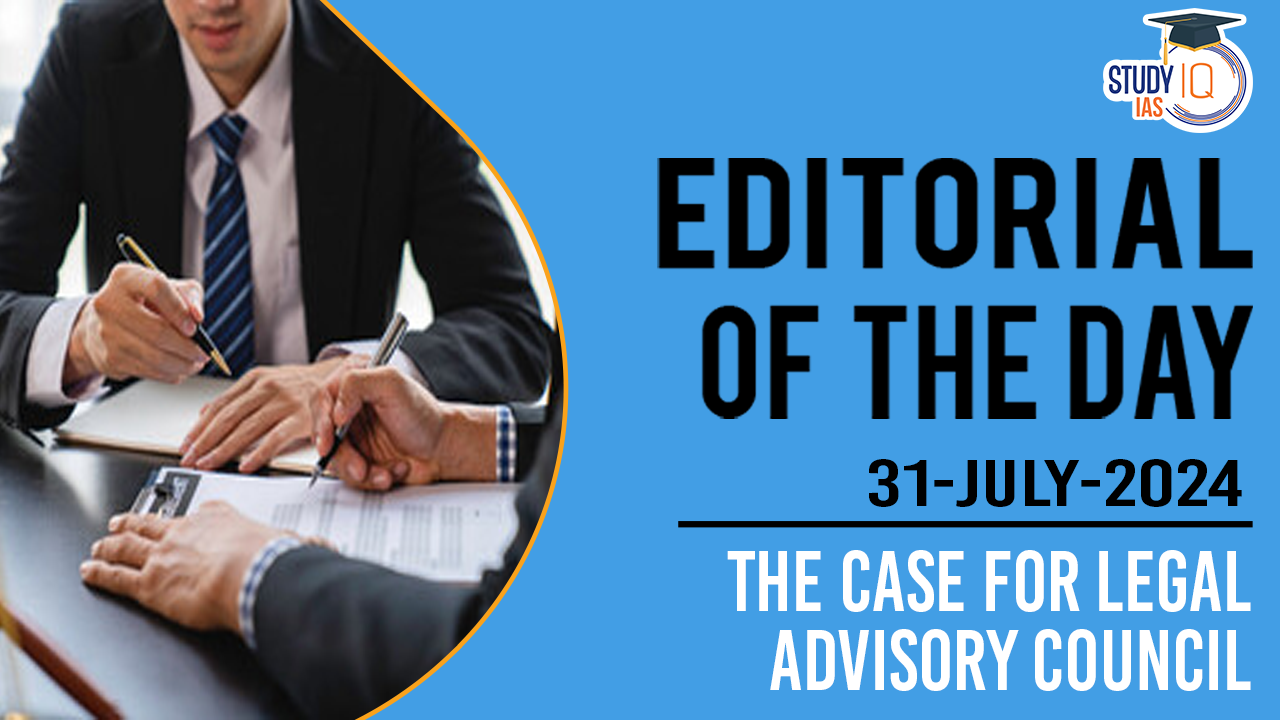Table of Contents
Context: There is a need to review the process of legal consultancy to the government and to establish a Legal Advisory Council (LAC) for the Prime Minister.
Reasons for Establishment
- Electoral Bonds Scheme: It was held unconstitutional by the Supreme Court for violating the right to information of voters.
- A proportionality test before enforcement could have balanced the right to privacy of donors with the right to information of voters, potentially avoiding the Court’s verdict.
- Aadhaar Act, 2016: The Supreme Court’s intervention in S. Puttaswamy v. Union of India (2018) might have been avoided with a similar pre-enforcement exercise.
- Transporter Strike: Section 106(2) of Bharatiya Nyaya Samhita, 2023 stipulated that if a person is involved in an accident and flees without reporting then there will be an imprisonment of up to 10 years.
- Raised concerns among transporters on provisions and led to transporter strikes.
- Later the government agreed to amend the provision.
- Law Commission of India: It has been criticised for its low engagement and effectiveness:
- Between 2020 and 2024, only four reports were prepared by the 22nd Law Commission upon reference by the Government of India.
- Historically, only 50% of LCI recommendations have been implemented.
- The LCI has produced an average of only 4.19 reports per year since its inception.
| K.S. Puttaswamy v. Union of India (2018) Case |
|
Proposal for a Legal Advisory Council (LAC)
- Structure: Similar to the Economic Advisory Council (EAC)
- Objective: Would aid and assist the Prime Minister’s Office (PMO)
- The terms of reference could include:
- Legal analysis of issues referred by the Government of India.
- Analysis of the possible impacts and outcomes of any contemplated law upon reference by the Prime Minister.
- Suo motu legal research and analysis on contemporary issues.
- Composition and Functioning:
- The LAC could comprise legal luminaries, eminent jurists, prominent academicians, and researchers specialising in various fields frequently legislated upon, such as criminal law, trade law, international law, business laws, and taxation laws.
- Unlike the Law Commission of India (LCI), which functions under the Ministry of Law and Justice, the LAC would work with the PMO.
- While the LCI’s role is reactive, recommending reforms in existing laws, the LAC would proactively anticipate impacts and challenges of forthcoming laws.
| Role of National Law Universities |
|
Conclusion
Leveraging the academic potential of national law universities and the creation of a dynamic LAC can help the government navigate the complex and diverse legal landscape more effectively. This approach is not the only solution but can significantly contribute to addressing legal challenges.


 Places in News for UPSC 2025 for Prelims...
Places in News for UPSC 2025 for Prelims...
 New Phase of Operation Chakra to Combat ...
New Phase of Operation Chakra to Combat ...
 Soyuz Aircraft: History, Design and Sign...
Soyuz Aircraft: History, Design and Sign...





















